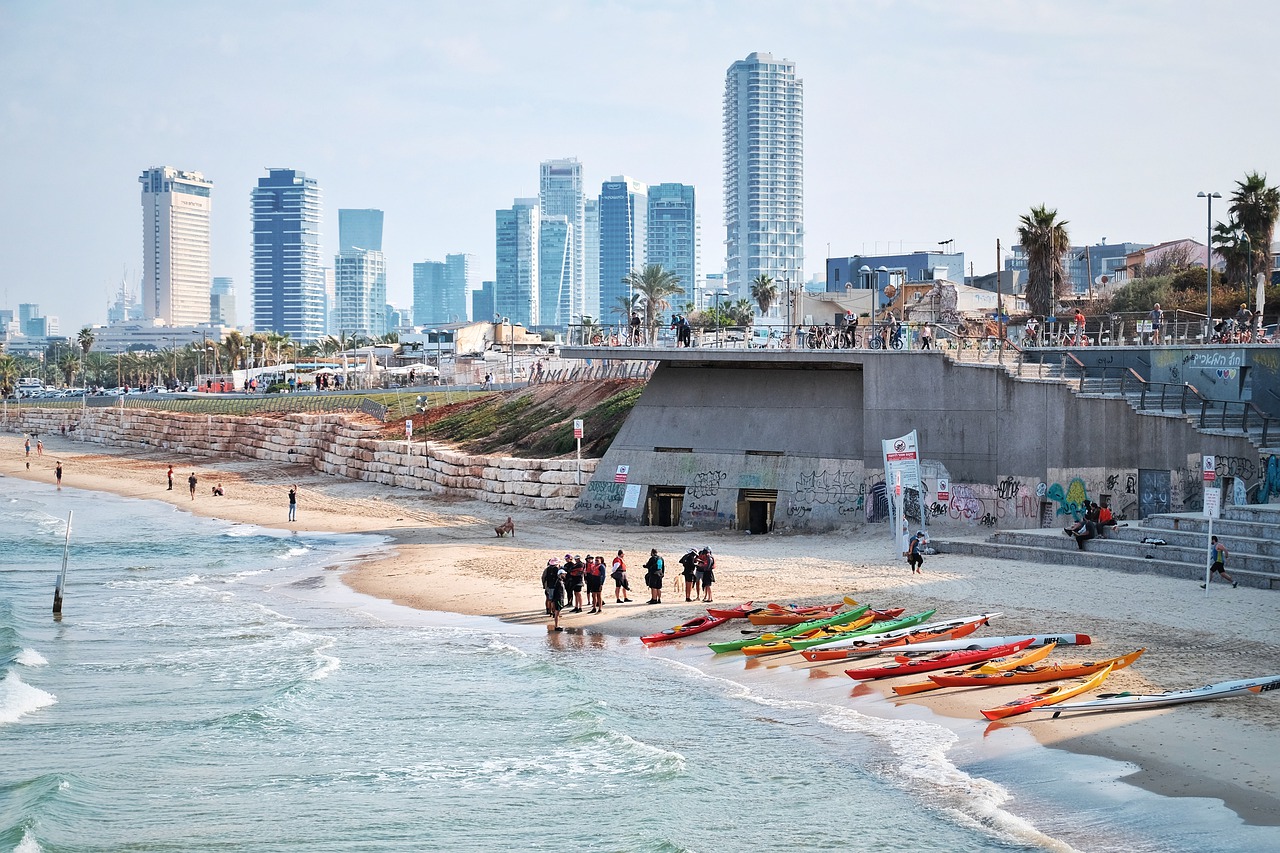Safety Tips for Remote Workers in Israel
With the rise of remote work, more individuals are opting to work from the comfort of their homes or while traveling. Israel, known for its vibrant culture and historical significance, is a popular destination for remote workers. However, it is important to prioritize safety while working remotely in any location. This article provides comprehensive safety tips for remote workers in Israel to ensure a secure and enjoyable work experience.
Section 1: Research Your Destination
Before traveling to Israel, it is crucial to research and familiarize yourself with your destination. Understand the local culture, customs, and laws to ensure you can navigate the country safely. Research the areas you plan to visit and identify any potential safety risks or areas to avoid. Familiarize yourself with the local emergency numbers, healthcare facilities, and transportation options.
- Check Travel Advisories: Stay updated with the latest travel advisories issued by your country’s government or international organizations to understand the current security situation in Israel.
- Learn Basic Hebrew Phrases: Knowing a few basic Hebrew phrases can help you communicate and navigate more effectively, especially in non-touristy areas.
- Identify Safe Accommodation: Choose accommodation in safe and well-known areas. Research reviews and ratings to ensure a secure stay.
Section 2: Secure Your Digital Environment
When working remotely, it is crucial to protect your digital environment to prevent unauthorized access to sensitive information or cyberattacks. Follow these tips to secure your digital workspace while working in Israel.
- Use Strong Passwords: Create unique and complex passwords for all your online accounts. Consider using a password manager to securely store and manage your passwords.
- Enable Two-Factor Authentication (2FA): Enable 2FA for your online accounts whenever possible. This provides an extra layer of security by requiring a second form of verification.
- Use a Virtual Private Network (VPN): Utilize a VPN to encrypt your internet connection and protect your data from potential eavesdropping or hacking.
- Keep Software Updated: Regularly update your operating system, applications, and antivirus software to ensure you have the latest security patches.
Section 3: Personal Safety Tips
While working remotely in Israel, it is essential to prioritize personal safety. Follow these tips to stay safe during your time in the country.
- Stay Aware of Your Surroundings: Always be mindful of your surroundings, especially in crowded or unfamiliar areas. Avoid displaying valuable items and be cautious of pickpockets.
- Use Reliable Transportation: Opt for reputable taxi services or rideshare platforms when traveling within Israel. Avoid accepting rides from unlicensed or unofficial vehicles.
- Secure Your Belongings: Keep your belongings secure at all times. Use a lock or secure storage for your valuables, especially when staying in accommodations or public areas.
Israel Image 1:

Section 4: Health and Well-being
Maintaining good health and well-being is essential for remote workers in any location. Here are some tips to prioritize your health while working remotely in Israel.
- Stay Hydrated: Carry a water bottle with you and stay hydrated, especially during hot weather.
- Eat Healthy: Explore the local cuisine but also ensure a balanced diet. Incorporate fresh fruits and vegetables into your meals.
- Get Regular Exercise: Take breaks from work to engage in physical activities. Israel offers various outdoor activities like hiking, swimming, and yoga.
Section 5: Emergency Preparedness
Being prepared for emergencies is crucial for remote workers in any location. Familiarize yourself with emergency procedures and resources in Israel.
- Save Emergency Contacts: Save emergency contact numbers, including local authorities, healthcare facilities, and your embassy or consulate.
- Know Emergency Exits: Identify emergency exits in your accommodation and other places you frequent. Familiarize yourself with evacuation procedures.
- Carry a First Aid Kit: Keep a basic first aid kit with essential supplies for minor injuries or illnesses.
Section 6: Cultural Sensitivity
Respecting the local culture and customs is important when working remotely in Israel. Here are some tips to ensure cultural sensitivity.
- Dress Appropriately: Respect local customs by dressing modestly, particularly in religious sites or conservative areas.
- Observe Religious Practices: Be mindful of religious practices and customs. Avoid scheduling meetings or activities during significant religious holidays.
- Learn Greetings and Etiquette: Familiarize yourself with common greetings and etiquette in Israel to show respect and build positive relationships with locals.
Israel Image 2:

Section 7: Transportation Safety
When using transportation in Israel, prioritize safety to ensure a smooth and secure travel experience.
- Follow Traffic Rules: Familiarize yourself with local traffic rules and regulations. Observe speed limits and traffic signs.
- Use Licensed Taxis and Rideshares: Opt for licensed taxis or reputable rideshare services. Verify the driver and vehicle details before getting in.
- Secure Valuables: Keep your belongings secure while using public transportation. Be cautious of potential theft or loss.
Section 8: Emergency Services
In case of emergencies, it is crucial to know how to access emergency services in Israel.
- Emergency Numbers: Memorize or save emergency contact numbers, including the police, ambulance, and fire department.
- Language Assistance: If you don’t speak Hebrew, keep a translation app or phrasebook handy to communicate your emergency situation.
Section 9: Cybersecurity Measures
To protect your digital presence in Israel, implement cybersecurity measures and best practices.
- Use Secure Wi-Fi Networks: Avoid connecting to unsecured or public Wi-Fi networks. Use a secure and private network whenever possible.
- Avoid Suspicious Emails and Links: Be cautious of phishing emails or suspicious links. Avoid clicking on unknown or unverified sources.
- Regularly Back up Data: Create regular backups of your important files and documents to minimize the risk of data loss.
Israel Image 3:

Section 10: Work-Life Balance
Maintaining a healthy work-life balance is important for remote workers in Israel. Follow these tips to avoid burnout and maintain productivity.
- Set Boundaries: Establish clear boundaries between work and personal life. Define specific work hours and take breaks when needed.
- Create a Dedicated Workspace: Set up a designated workspace that promotes focus and productivity.
- Take Advantage of Flexibility: Enjoy the flexibility of remote work by exploring the local attractions and taking breaks to rejuvenate.
Section 11: Emergency Evacuation Plans
In the unlikely event of an emergency evacuation in Israel, it is important to be prepared and have a plan in place.
- Know Evacuation Routes: Familiarize yourself with evacuation routes in your area and have a backup plan in case of road closures or congestion.
- Emergency Kits: Prepare emergency kits with essential supplies like food, water, medications, and important documents.
- Stay Informed: Stay updated with local news and emergency alerts to be aware of any evacuation orders or instructions.
Section 12: Conclusion
Working remotely in Israel can be a rewarding experience, but it is crucial to prioritize safety. By following these safety tips, you can ensure a secure and enjoyable remote work experience in Israel.
References
– Israel Ministry of Tourism: tourism.gov.il
– U.S. Department of State – Israel Travel Advisory: travel.state.gov
– UK Government Foreign Travel Advice – Israel: gov.uk
– Cybersecurity and Infrastructure Security Agency (CISA) – Remote Work Guidance: cisa.gov
– Centers for Disease Control and Prevention (CDC) – Traveler’s Health – Israel: cdc.gov

